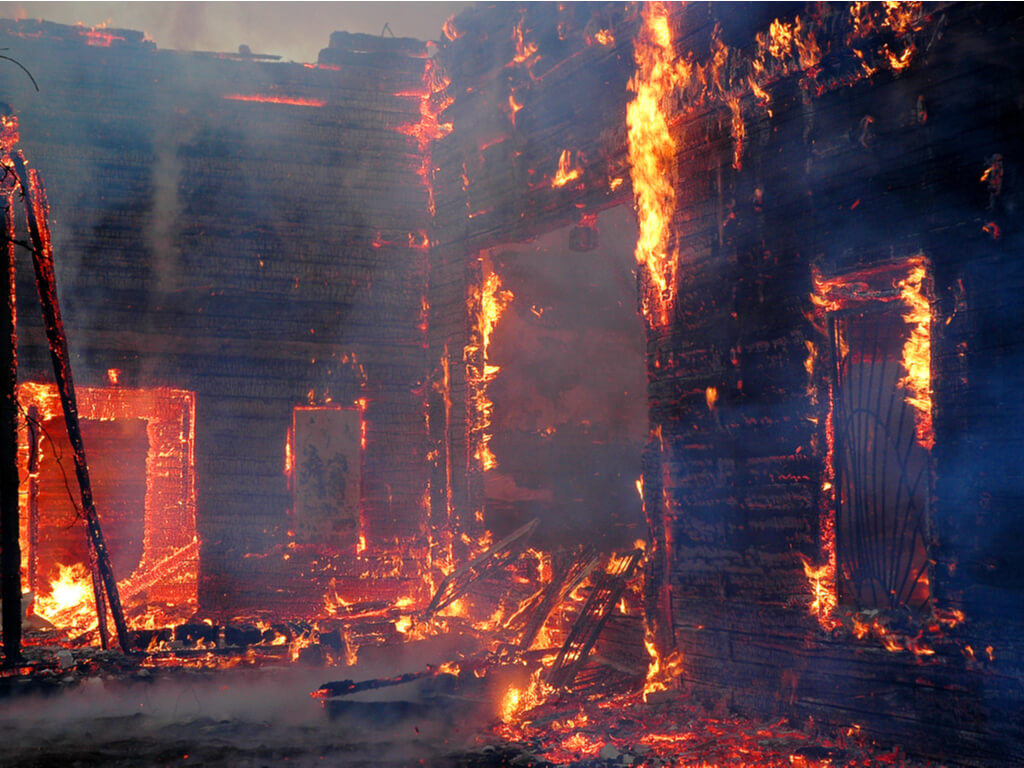Your Main Location Suffers Significant Property Damage…(PDF)
You get that call no one wants to get in the middle of the night. Your main location is on fire. While it may not be a total loss, the damage is major. You have insurance, but do you have enough? What if your business is shut down? Will your insurance cover your loss of income? What about payroll? All of these things are running through your mind as you try to figure out what to do next.
The first step in successfully navigating and resolving a major claim actually takes place before the claim even happens.
The key is making sure you have the right coverage to begin with. This cannot be over-emphasized. If you don’t have coverage or if you have inadequate limits…you are fighting an uphill battle from day one. You will want to make sure that you and your insurance broker have done a thorough review of all your exposures to ensure you have the appropriate coverage, terms, and adequate limits.
The role of the broker in a claim-situation is to work with the insured and the insurance company to make certain the claim is handled expeditiously and fairly. Most of our insurance companies do an excellent job managing their claims.
When they do, our role (the broker) is to monitor the claim and stay in touch with our client. We make sure the insurance company is doing their job and we also make sure our client’s expectations are reasonable. We are there to answer our client’s questions, but it is the insurance company that does most of the work.
Okay, back to paragraph 1: You get the call… your building is on fire! The first thing you need to do is take whatever action you can to prevent future damage. The second thing you want to do is report the claim to your insurance company. That can be done directly, but as a broker we prefer it be done through us. We will make sure your claim gets into the right hands, and that you are contacted in a timely fashion. You have other obligations you should be aware of, and these are spelled out in the Property Policy. Here is the section from ISO’s Property Form (CP 0010 1012), Duties In The Event Of Loss Or Damage. Note that “us” refers to the insurance company. The bolding is mine.
“You must see that the following are done in the event of loss or damage to Covered Property.
- Notify the police if a law may have been broken.
- Give us prompt notice of the loss or damage. Include a description of the property involved.
- As soon as possible, give us a description of how, when and where the loss or damage occurred.
- Take all reasonable steps to protect the Covered Property from further damage, and keep a record of your expenses necessary to protect the Covered Property, for consideration in the settlement of the claim. This will not increase the Limit of Insurance. However, we will not pay for any subsequent loss or damage resulting from a cause of loss that is not a Covered Cause of Loss. Also, if feasible, set the damaged property aside and in the best possible order for examination.
- At our request, give us complete inventories of the damaged and undamaged property. Include quantities, costs, values and amount of loss claimed.
- As often as may be reasonably required, permit us to inspect the property proving the loss or damage and examine your books and records. Also, permit us to take samples of damaged and undamaged property for inspection, testing and analysis, and permit us to make copies from your books and records.
- Send us a signed, sworn proof of loss containing the information we request to investigate the claim. You must do this within 60 days after our request. We will supply you with the necessary forms.
- Cooperate with us in the investigation or settlement of the claim.”
The keys here are protecting the property from further damage, timely notification, and cooperating with the insurance company.
Take All Reasonable Steps to Protect the Property – Whenever there is major property damage, it is critical to get a remediation contractor on site immediately. The remediation contractor will work to prevent future damage and place any appropriate barriers to protect the public. The Insured has the right to select whatever remediation contractor they want. Their broker should also be able to recommend several to choose from.
Timely Notification – Insureds may be apprehensive about reporting a claim to their insurance company for fear their rates will go up, or that they will be non-renewed. Regardless, timely notification is critical to a positive resolution. If an insurance company isn’t notified timely, they can claim (often rightly so) that their ability to adjust the claim was compromised. In certain situations, they can even void the coverage. At the same time, a claim which is turned in and results in zero payments should not affect future rates or insurability. Lastly, in addition to funding the repairs, a quality insurance company will help the Insured understand the process and provide appropriate recommendations for contractors and other vendors that are integral to the claims resolution process.
Cooperate with the Insurance Company – The insurance company is your partner, not your adversary. Insureds pay premium in exchange for a commitment by the insurance company to indemnify the Insured for covered losses. Insurance companies are in business to pay claims, and most companies out there do a great job. Regardless, for most Insureds this is the first time they have had to deal with a significant loss. It is the role of the insurance broker and insurance company to make certain the process is understandable, efficient, and fair.
The Initial Meeting – As soon as possible after a claim, your broker should arrange a meeting with the Insured, the insurance company’s claim adjuster, and the broker’s claims team. If this can be scheduled on site it should be. The meeting’s purpose is to assess the damage and discuss who is supposed to do what by when. Clarity and accountability are key. Effective claim resolution requires all parties to work in a collaborative manner. At a minimum this meeting should cover the following:
- Introductions – Who does what?
- What needs to be done now, who is going to do it, and by when?
- What is the timeline for the entire period of restoration?
- What is covered, and what isn’t?
- How will the insurance company cash flow the repairs?
- Open Discussion
Subsequent Meetings – Regularly scheduled meetings should be considered in addition to the periodic questions that come up during the claim process. It is important to make certain that the claim is on track. If the claim gets off track, it is important to address it as soon as possible.
Final Comments – The main reason people buy insurance is to cover claims. When they have a claim, they want it handled fairly and expeditiously. Fundamental to this is getting the coverage right up front, and placing your insurance with a reputable insurance company that has a history of adjusting claims fairly and understanding the Insured’s obligations under the policy. Working with the right insurance broker will go a long way towards making the resolution of a claim successful.
The preceding material is provided for informational purposes only. Before taking any action that could have legal or other important consequences, speak with qualified legal and insurance professionals who can provide guidance that considers your own unique circumstances, including applicable employment laws.


